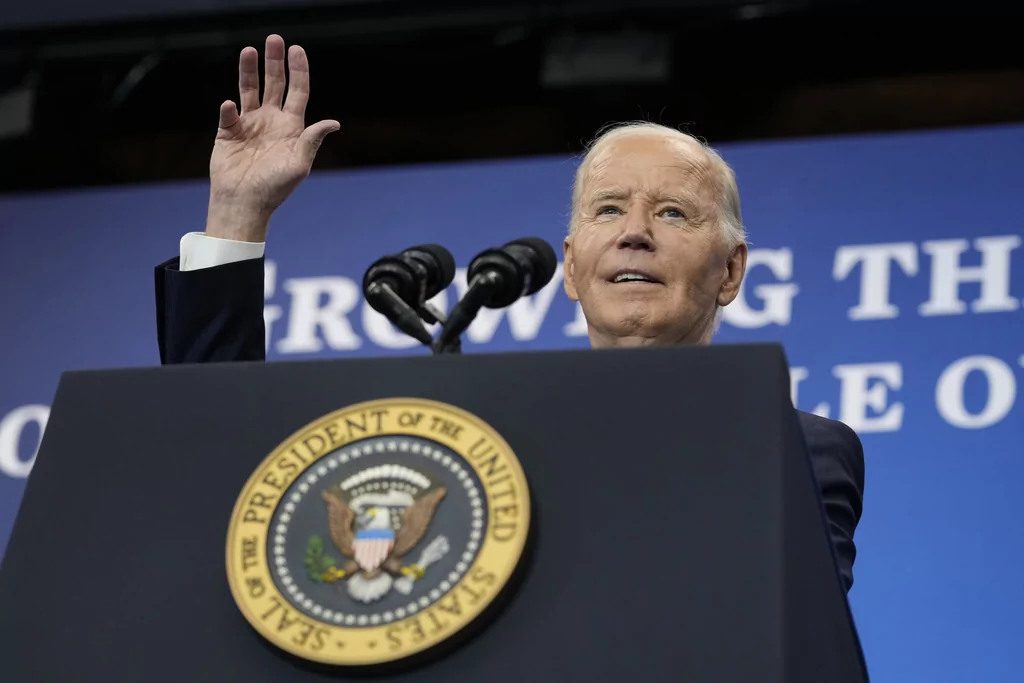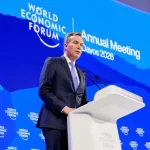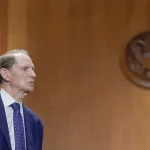

The two phenomena are not directly related, but Biden’s Bidenomics swan song and the persistence of inflation together serve as an effective illustration of the problems that have plagued his administration for most of his term.
MEET THE NEW CONGRESS: THE HOUSE AND SENATE FRESHMEN ELECTED TO SERVE NEXT YEAR
Biden’s happy talk about the economy failed to convince many voters. It’s a reason his job approval rating stands at just 39.1%, according to the RealClearPolitics polling average. Biden’s economic disapproval rating was at 60% or worse in three of the last five polls the outlet included, with a fourth showing 59% disapproving of his handling of the economy.
On Election Day, 68% of voters rated the economy as “not so good” or “poor” to just 5% who thought it was “excellent,” according to the exit polls. President-elect Donald Trump received 70% of the vote among the first group. He took 88% among the third of voters who thought national economic conditions were poor. Trump won 81% of voters who said the economy was their top issue. Fifty-three percent of all voters said they trusted Trump more on the economy.
HOW BIDEN IS TRYING TO SHAPE HIS LEGACY WITH JUST MONTHS LEFT IN OFFICE
The outgoing president’s economic messaging was consistently hampered by two factors: Voter perceptions of the economy were shaped more by inflation and the high cost of living than the most positive aggregate economic data the Biden administration preferred to cite and his own limitations as a communicator as his term wore on.
Age isn’t the only reason Biden struggled to drive a message on the economy or other issues. While comfortable making standard Democratic arguments about economic policy, his background in the Senate was chairing the Judiciary and Foreign Relations Committees. His theory for how he was growing the economy from the middle out never seemed to resonate beyond his partisan base.
But it was a pretty big factor. Now 82, Biden isn’t as smooth of a communicator as he once was. He is no longer reliable as an impromptu speaker and is not even as skilled as he used to be when reading a teleprompter. This showed up most conspicuously in his June 27 debate disaster and subsequent failure at post-debate damage control, resulting in the end of his reelection campaign.
In his Brookings Institution economic speech on Tuesday, Biden returned to the themes that hadn’t moved the needle much in the past three years, with sometimes halting delivery.
“After decades of trickle-down economics that primarily benefitted those at the very top, we — we’ve written a new book that’s growing the economy — the middle-out and the bottom-up — that benefits, thus far, everyone,” Biden said. “And that’s going to be the test with go- — going forward.”
This hokey-pokey as economic theory never connected with voters. The legislation Biden credits with bringing back pre-pandemic prosperity, the American Rescue Plan, is precisely what many Republicans blame for inflation spiking to a 41-year high.
“We acted quickly to get inflation down with the help of Republicans and Democrats. Inflation came down to pre-pandemic levels. Wages have increased,” Biden said Tuesday. “But still, too many working- and middle-class families struggle with high prices for housing and groceries and the daily needs of life.”
Biden allies were slow to acknowledge that second point. His economic team initially insisted that inflation was “transitory.” When unemployment goes down, people go back to work. When inflation goes down, prices don’t return to their levels of just a few years ago. Moreover, voters remembered low unemployment and a growing economy with little inflation under Trump.
This sets up an odd tension in Biden’s Brookings speech where he mentions the good things he is bequeathing to “my successor” and the economic follies of “my predecessor” who happens to be the same person. He mentions Trump by name only twice, once to say he should have copied the once and future president by putting his own name on the stimulus checks and then again in a quote from Time magazine about the good economy Trump will inherit. Biden concluded by daring Trump to undo his economic policies, saying he had set the “benchmarks, if you will, that we should measure the success or failure of our next four years.”
CLICK HERE TO READ MORE FROM THE WASHINGTON EXAMINER
Yet, a plurality of voters looked at these same results and concluded it was time to bring back Trump.
From the bottom-up and middle-out to over and out for Biden in four years.







